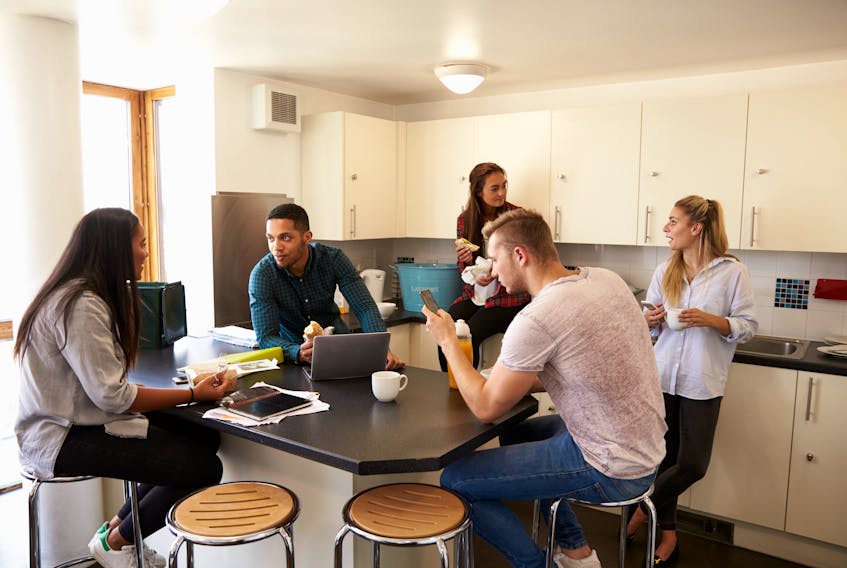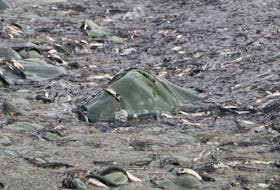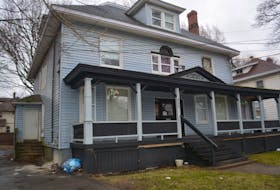Halifax has long been a university town, with fresh-eyed new students travelling from around the world every year to undertake the next step in their education at one of the many college campuses here.
But like everything else it has touched, COVID-19 may prove disruptive to that status quo come the fall, as several universities have announced plans to have a fully-digital semester in September.
Dalhousie's spring/summer and fall terms will “be predominantly online,” according to the school's website, “with limited exceptions. In-person, on-campus instruction this fall will only be offered in programs where it is required to fulfill industry or field-specific accreditation requirements.”
The University of King's College, also in Halifax, is likewise shifting its Foundation Year Programme to a “holistic,” all-online fall semester, as well as reducing residential capacity by half (bonus – each student will have their own room, so no roommates).
Other Halifax universities - including Saint Mary's, Mount St. Vincent, and the Nova Scotia Community College - are following suit, gearing up for a “virtual university” semester.
A loss of incoming students would naturally send ripples throughout the local economy in all sorts of ways, but one sector in particular that relies on a flood of young academics are the local renters who specialize in student accommodations.
“If it wasn’t for them, I would have a different job,” says Rob Gale, owner/operator of GradPads, which lists about 30 units across a handful of houses in the peninsula.
Gale estimates that up to 98 per cent of his rentals are student-related.
“Your first thought is, ‘nobody’s going to come,’” Gale says, explaining his first response to the news of an all-digital semester.
“If they go to school online, there’s a good chance that nobody’s going to come.”
Matthew Moore, owner of Moore Student Living – which tends to six buildings in South End Halifax – saw similar writing on the wall.
“It’ll definitely have a negative effect, because I think a lot of students are actually taking the year off,” says Moore, who estimates he's already looking at a 25 per cent drop in tenants this fall.
“It’s very isolating, so recent graduates probably will delay coming to university. That’s definitely going to lower the demand for student rentals.”
But while the student living market is likely to take some kind of hit, the outlook among landlords catering to students – especially in the wake of weeks-long streaks without new cases in the province – is that this is a temporary hurdle to weather until in-person classes resume, according to Moore.
“We’ll just have to ride it out, hoping that classes resume at Dal and Saint Mary’s in January,” says Moore.
Cleaning units
In the meantime, renters like Gale and Moore are planning ahead and taking advantage of their unique hold in the marketplace to get through a rough fourth quarter.
“The best way to deal with that is to stop spending and start saving,” explains Gale. “That was the first thing I looked for. A lot of the things that didn’t absolutely, 100 per cent have to happen were immediately cancelled.”
Also, thanks to the fact that a majority of his tenants move in and out in the space of about four days a year, and that many of them have to come from away to move in, getting units cleaned and ready while observing social distancing has gone relatively smoothly.
“With the exception of a few cases, there was really no rush, because the people that were out-of-province weren’t rushing to Nova Scotia to move in,” says Gale, who was able to allow his cleaning crew a two-week window before having to address most units.
“I negotiated some of the work with the tenant, and for the most part, everybody understood.”
As for Moore, he caters to international students, and offers furnished apartments for semester-long leases.
“You don’t have to be stuck in a fixed, long-term/yearly lease,” he says. “Which is a great option for international students.”
Second wave?
Things could change further if another wave hits and classes don't resume in January. In that case, renters like Moore and Gale might be in a bit more trouble and would have to court other markets or offer incentive pricing to make up the difference.
But Gale suspects that regardless of how long the COVID-19 pandemic lurches on, students will come to the city this fall, and next winter, and beyond, because university life isn't just one's class time.
“Going to university isn’t just about going to school, but to go to the school of life, as it were,” says Gale.
“There’s still kids who are going to want to go to the library. They’re still potentially going to want to go in and see their professors. They’d rather be stuck with their buddies in quarantine than stuck with their parents.”
Moore adds that most students he's spoken to are more concerned about what happens with their lease if schools don’t resume in January and other ways circumstances might fall out from under them, not so much the virus itself.
“One of the nice things about university is you’ll be meeting people and making friends,” says Moore, and while classes won't be a venue for that sort of social connection, students and student communities will likely find ways to make up for that.









